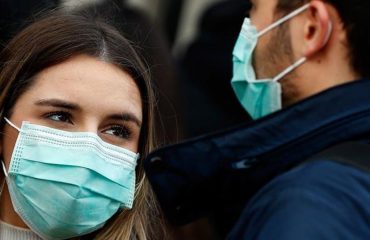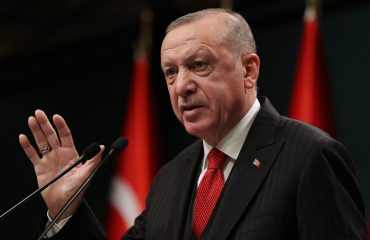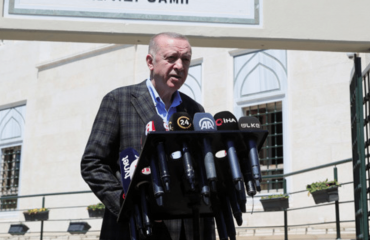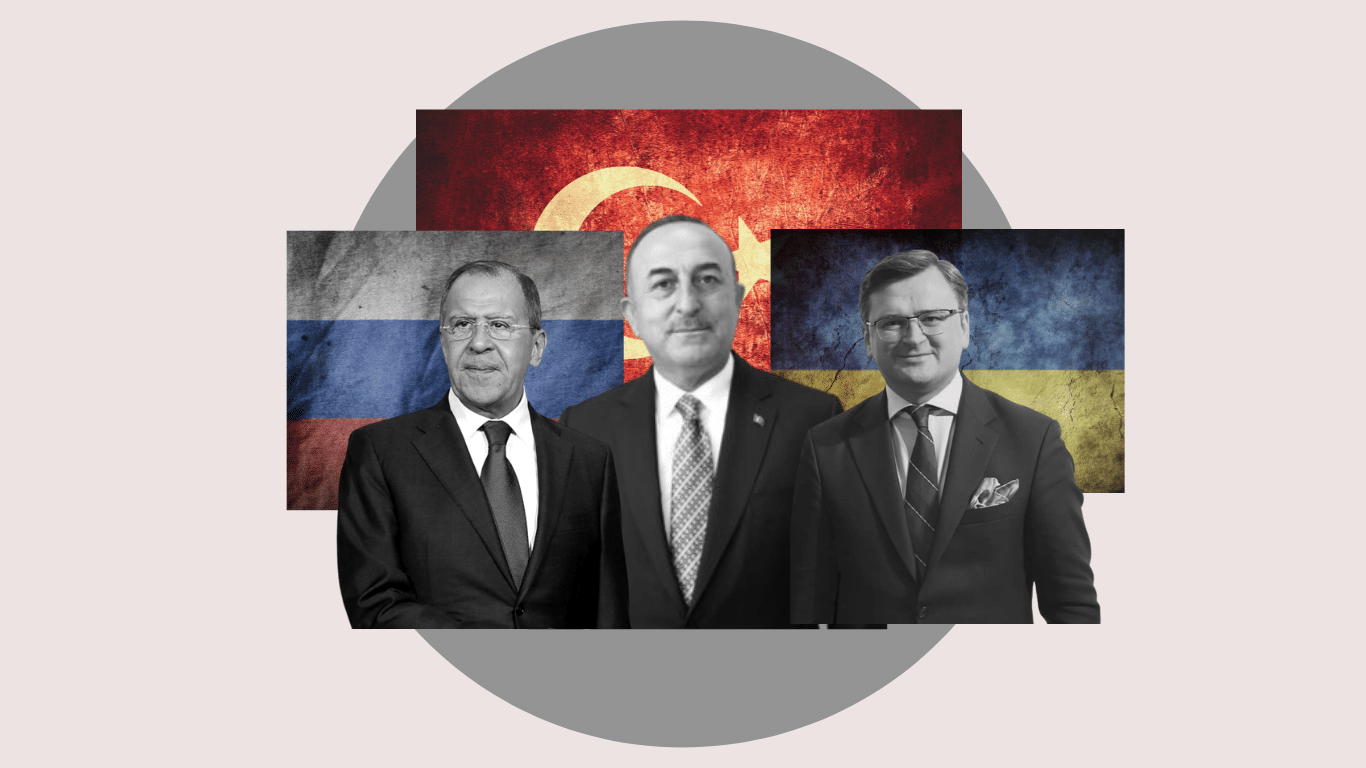
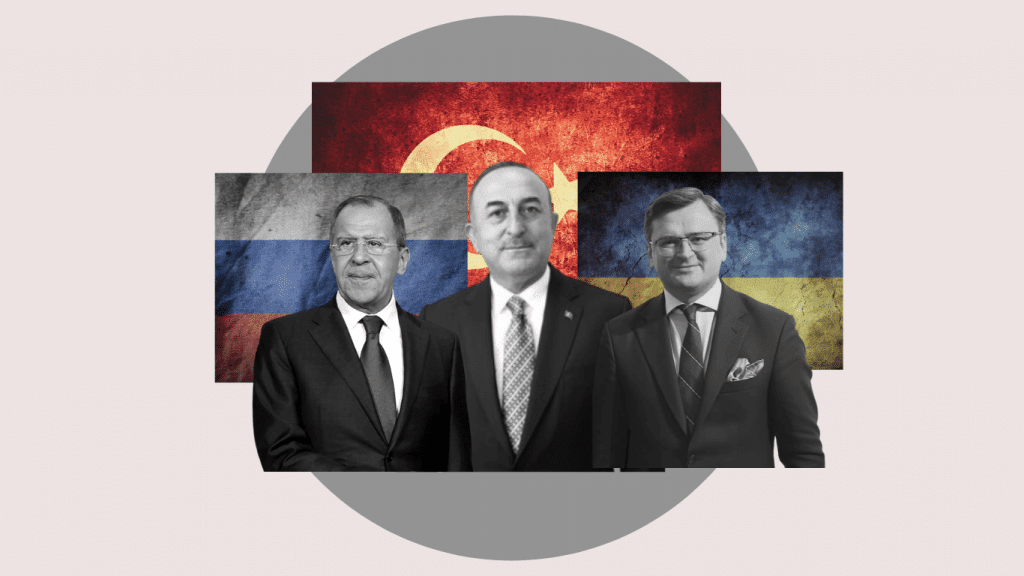
Turkey’s Minister of Foreign Affairs Mevlüt Çavuşoğlu announced on March 7 that Russian Foreign Minister Sergey Lavrov and Ukrainian Foreign Minister Dimitro Kuleba are to meet on Thursday, March 10 in Antalya, Turkey. This tripartite meeting will be the first high-level meeting between the two countries since Russia’s offensive began on February 24.
Russian Foreign Spokesperson Maria Zakharova said that the nature of these talks would be of negotiation, not on technical issues but political matters, emphasising that it depends on how ready Ukraine is for this. Announcing that the meeting to be held within the framework of the Antalya Diplomacy Forum (ADF) on March 11-13, Çavuşoğlu said that up until this stage, President Tayyip Erdoğan had 19 meetings at the presidential level, and the minister had 40 meetings, 6 of them with Kuleba, 4 with Lavrov.
Will this diplomatic success be a turning point for the resolution of the Ukraine Crisis?
Turkey and those who have been harmed by the prolongation of this crisis put an effort for that; but it does not seem easy. The main reason is that Russia wants Ukraine to accept all its demands.
Russia’s demands: The crisis seems to last for a long time
Assessments made in Ankara and most capitals indicate that the crisis will continue long.
So what does Russian President Vladimir Putin want?
1- First of all, he wants Volodymyr Zelensky, whom he sees as a puppet of the West, and his administration to withdraw. He told this to French President Emmanuel Macron, as reported by many news outlets. He wants someone pro-Moscow or at least will withdraw Ukraine’s requests to become a member of NATO and the European Union.
2- He wants assurances from NATO and the European Union that Ukraine (and in the same context, Georgia and Moldova) will not be accepted as members. British Prime Minister Boris Johnson’s assurance published in the New York Times on March 6 that NATO has no plans to include Ukraine may not be sufficient for Putin.
3- Putin wants Ukraine not to take up arms. That means Ukraine’s waiver of its sovereign rights as an independent country.
4- He also wants Ukraine to accept the Russian control of Crimea, Donetsk and Luhansk in the East, which means that he also covets Ukraine’s UN-recognised territorial integrity.
The crisis seems to last for a long time due to these difficult demands.
Russia’s main goal
Russia wants to update the world order, which was established after the Second World War and was shaken by the collapse of the Soviet Union in 1991, by shaking hands with the USA.
Within this framework, NATO does not move further east of its current borders.
Russia is confident in its military recovery and NATO’s decision not to engage in a conflict with Russia, which could escalate into a Third World War, in which nuclear weapons could also be used. From another point of view, Russia uses slowness of the decision-making mechanisms of Western democracies and accountability to the electorate in determining the military budget as a weapon against the West.
In this context, German Chancellor Olaf Scholz’s declaration of an armament budget of 100 billion Euros, the highest amount since the Second World War, is one of the most remarkable developments since the beginning of the Ukraine crisis.
Russia can make moves in two more geographies in terms of its sphere of influence: Central Asia and the Balkans.
Turkey needs to be very careful about both the Ukraine Crisis and the crises that may follow.
Curtain up in Antalya
The government has been cautious since the beginning of the Ukraine crisis.
Enforcement of the Montreux Convention and preventing the passage of Russian warships through the Straits received the support of countries such as the USA and the UK, which once made efforts to cancel the Convention. Even though this seems to be against Russia at the moment, this was what Moscow wanted from the beginning.
On the other hand, Turkey disagrees with Western economic sanctions against Russia. There is intel that after Erdogan’s March 6 phone call, Putin allowed the travel of 30 ships that were held in the Azov Sea to bring wheat and sunflowers to Turkey. In the case of an oil and gas embargo, it is highly likely that Turkey will be excluded.
Thanks to this cautious attitude adopted by the impact of the economic crisis, which is likely to get worse, Çavuşoğlu is able to bring Lavrov and Kuleba together in Antalya – if nothing goes wrong at the last moment. The second act opens in the diplomatic scene of the Ukraine Crisis in Antalya.
This may not be the final act. But it is important that this curtain will be opened in Antalya with Turkey’s diplomatic efforts.
